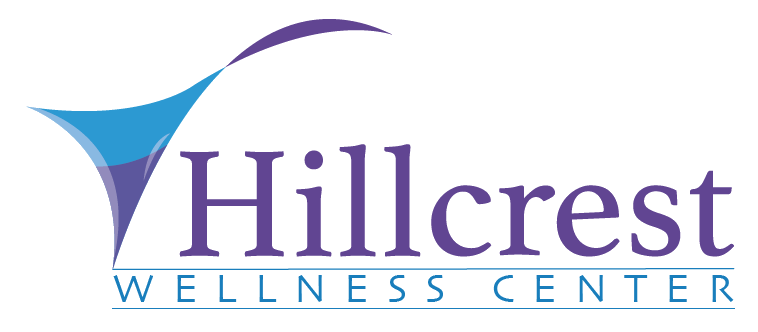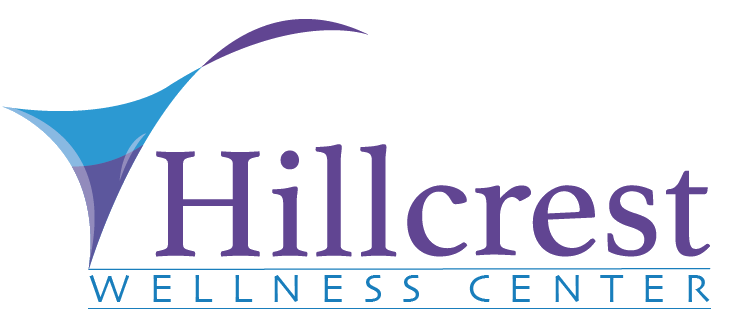Beat the End-of-Summer Slump: Energy-Boosting Habits Before Fall
Key Points
- End-of-summer fatigue is real - your body's getting ready for seasonal changes
- Small tweaks to sleep and hydration habits can make a huge difference in energy
- Micro-breaks during the day actually boost focus instead of wasting time
- Hormone imbalances might be sabotaging your energy (and we can help fix that)
- Getting ahead of fall prep now saves you from feeling overwhelmed later
Okay, let's talk about something nobody wants to admit: you're completely wiped out, aren't you?
It's late August, the summer you were so excited about is winding down, and instead of feeling energized and ready to tackle fall, you're dragging yourself through each day like you're moving through molasses. Your morning coffee isn't cutting it anymore. That afternoon crash hits like a brick wall. And don't even get me started on trying to muster enthusiasm for back-to-school prep or getting back into work routines.
Here's the thing - you're not lazy, you're not broken, and you're definitely not alone. What you're experiencing has a name: end-of-summer energy slump. And the good news? There are actually some pretty simple things you can do right now to turn this around before fall hits.
I've been working with people at Hillcrest Wellness Center for years, and August is always when I see this wave of patients coming in saying basically the same thing: "I should be feeling great, but I just... don't."
What's Actually Happening to Your Body Right Now
Your body isn't just randomly deciding to be difficult. There's some real science behind why late summer feels so exhausting.
First off, your internal clock is already starting to prepare for shorter days ahead. Even though it's still hot and the days are long, your brain's getting signals that change is coming. Your circadian rhythm - that internal clock that tells you when to be awake and when to sleep - is starting to shift. You're probably producing more melatonin earlier in the evening than you were a month ago.
Add to that the fact that you've likely been staying up later all summer (because who wants to go to bed when it's still light out at 9 PM?), and your sleep debt has been quietly building up. Your body's been working overtime to keep you cool in the heat, which is genuinely exhausting. And if you're anything like most people, your summer eating and exercise routines have been, let's say, more relaxed than usual.
The Heat Factor Nobody Talks About
Here's something that might surprise you: summer fatigue is a real medical thing. When you're exposed to heat for extended periods, your body has to work incredibly hard to maintain its normal temperature. Blood gets redirected to your skin to encourage sweating and heat release, which means less blood flow to your muscles, digestive system, and even your brain.
This is why everything feels harder when it's hot. It's not in your head - your body literally has less energy available for normal activities because so much is being used for temperature regulation.
One of my patients described it perfectly: "I feel like my body's been running a marathon all summer, except I've been sitting at a desk."
The Real Culprits Behind Your Energy Crash
Sleep That Isn't Actually Restful
Let's start with the big one - sleep. You might be getting your usual seven or eight hours, but the quality probably isn't great. Longer daylight hours mess with your natural melatonin production. Hot, humid nights make deep sleep nearly impossible. And if you're anything like most people, you've been staying up later because summer just feels like it should have later bedtimes.
Your body needs that deep, restorative sleep to repair and recharge. When you're not getting it consistently, the fatigue builds up gradually until suddenly you're exhausted and can't figure out why.
Dehydration That's Sneakier Than You Think
Even mild dehydration - the kind where you don't actually feel thirsty - can make you feel sluggish, foggy, and tired. In summer, you're losing more water through sweating, even when you don't realize you're sweating. Air conditioning can be dehydrating too.
Most people think they're drinking enough water, but when I ask patients to actually track it for a day, they're usually shocked at how little they're actually consuming.
Hormone Imbalances That Get Worse in Heat
This is something we see a lot at our clinic. Extreme heat and the stress of seasonal transitions can throw your hormones out of whack. Your cortisol levels might be chronically elevated from heat stress. Your thyroid function can slow down. And if you're already dealing with hormone imbalances - whether it's low testosterone, estrogen deficiencies, or adrenal fatigue - summer heat can make everything worse.
I had a patient last month who was convinced she was just getting older because she felt exhausted all the time. Turns out her testosterone levels had tanked (yes, women need testosterone too), and once we addressed that with testosterone therapy, her energy came back completely.
Simple Fixes That Actually Work
The good news is you don't need to overhaul your entire life to start feeling better. Small, strategic changes can make a surprisingly big difference.
Sleep Tweaks That Don't Require Perfect Discipline
Let's be realistic here. I'm not going to tell you to suddenly start going to bed at 9 PM when the sun's still up. But there are some small adjustments that can improve your sleep quality without feeling like torture.
Start shifting your bedtime gradually. Just 15 minutes earlier every few days. Your body can adapt to small changes much easier than dramatic ones.
Make your bedroom as cool as possible. Your core body temperature needs to drop for deep sleep to happen. If your AC is struggling, even a fan pointed at your bed can help. I have patients who freeze water bottles during the day and put them at the foot of their bed at night.
Try blackout curtains or an eye mask. Those long summer days are beautiful, but they're confusing your brain about when it's actually time to sleep. Creating artificial darkness helps trigger your natural melatonin production.
Limit screens for an hour before bed. I know, I know. But the blue light really does mess with your sleep hormones. Try reading an actual book or doing some gentle stretching instead.
One patient told me she started doing a "sunset routine" where she dimmed all the lights in her house an hour before she wanted to sleep. "It's like I'm tricking my brain into thinking the sun actually set," she said. It worked.
Hydration Strategies That Don't Involve Chugging Water All Day
Proper hydration isn't just about drinking more water - it's about helping your body actually use the water you give it.
Add a pinch of sea salt to your water. This helps your cells actually absorb and retain the fluid instead of just peeing it all out. Your body needs electrolytes to use water effectively.
Eat water-rich foods. Watermelon, cucumbers, oranges, soups - these all contribute to your hydration in a way that's easier for your body to process than just plain water.
Start your day with a big glass of water. You've been basically fasting for 8 hours while you sleep. Your body wakes up already mildly dehydrated.
Set phone reminders. Sounds silly, but it works. Most people forget to drink water when they're busy.
The Magic of Micro-Breaks
This is probably the easiest thing you can implement today that will make an immediate difference. Instead of powering through your day until you crash, take tiny breaks every 30 minutes.
Stand up. Stretch your arms over your head. Take five deep breaths. Walk to the kitchen and back. Look out a window for 30 seconds.
These micro-breaks do two important things: they improve your circulation (which helps with energy and mental clarity) and they prevent that accumulation of physical and mental tension that leads to exhaustion.
A researcher at Columbia University found that just walking for 5 minutes every half hour had measurable health benefits. You don't need to do anything dramatic - just move your body briefly and regularly.
One of my patients, a busy mom, started setting a timer every 30 minutes during her workday. "At first I thought it would be disruptive, but I actually get more done because I'm not hitting that wall of exhaustion every afternoon."
Advanced Strategies for Stubborn Energy Issues
If you're doing all the basic stuff and still feeling wiped out, it might be time to dig deeper.
Hormone Testing and Optimization
This is where Hillcrest Wellness Center really shines. A lot of people don't realize that hormone imbalances can be the hidden cause behind chronic fatigue, especially as we get older.
Thyroid function often gets sluggish, especially in women. You might have "normal" levels according to standard tests, but still be at the low end of optimal.
Testosterone levels decline with age in both men and women. Low testosterone doesn't just affect libido - it impacts energy, muscle mass, motivation, and mental clarity. Our testosterone therapy can help restore optimal levels for both men and women.
Adrenal fatigue is real, especially if you've been under chronic stress. Your cortisol levels might be out of whack, leaving you tired but wired.
Vitamin deficiencies are incredibly common. B12, vitamin D, and iron deficiencies can all cause fatigue that no amount of sleep will fix.
The thing is, you can eat perfectly and exercise regularly, but if your hormones are off, you're going to feel tired no matter what. We do comprehensive testing to see what's actually going on in your body, not just guess.
Nutrition Timing That Matches Your Energy Needs
It's not just what you eat - it's when you eat it.
Front-load your protein. Having protein at breakfast helps stabilize your blood sugar all day, which prevents those energy crashes.
Save the carbs for later. If you're going to have pasta or bread, having it at dinner helps with sleep because carbs promote serotonin production.
Don't skip meals. Your body interprets meal-skipping as a stress signal and starts conserving energy. Regular, balanced meals keep your metabolism humming.
Strategic Supplementation
I'm not talking about throwing a bunch of random vitamins at the problem. But there are some specific supplements that can really help with energy, especially during seasonal transitions.
Magnesium helps with sleep quality and stress response. Most people are deficient.
B-complex vitamins support energy production at the cellular level.
Vitamin D is crucial for mood and energy, and most people's levels tank by the end of summer.
Adaptogens like ashwagandha can help your body handle stress better, which preserves energy for other things.
We can test your levels and recommend specific supplements based on what your body actually needs, not just what's popular on social media.
Preparing for Fall Without Burning Yourself Out
Part of the end-of-summer slump is dreading all the stuff you need to do to get ready for fall. School prep, schedule changes, getting back into work routines - it can feel overwhelming when you're already tired.
The Two-Week Transition Strategy
Instead of trying to flip a switch from summer mode to fall mode, give yourself two weeks to gradually shift.
Week 1: Start adjusting sleep schedules and meal times. Begin thinking about fall routines without actually implementing them yet.
Week 2: Start incorporating some structure back into your days. Maybe set a regular wake-up time or start meal planning.
This gradual approach prevents the shock to your system that comes with sudden routine changes.
Energy-First Planning
When you're making plans for fall activities, schedule, and commitments, ask yourself: "Will this give me energy or drain it?"
Obviously, some energy-draining things are necessary. But if you're already running on empty, you might need to say no to some optional activities, at least until you get your energy back.
One patient told me she made a rule that for every new commitment she added to her fall schedule, she had to remove something else. "I realized I was treating my energy like it was unlimited," she said.
And sometimes, low energy is connected to other health issues. If you're also struggling with weight gain that won't budge despite your efforts, our medical weight loss program can help address both energy and weight concerns together.
The Hormone Connection You Might Be Missing
Here's something most people don't know: seasonal transitions can trigger hormone imbalances, especially if you're over 35.
The stress of changing routines, kids going back to school, work ramping up - all of this affects your cortisol levels. Cortisol imbalances mess with your sleep, your blood sugar, and your other hormones.
If you've been dealing with any of these symptoms, it might be worth getting your hormones checked:
- Waking up tired even after a full night's sleep
- Afternoon energy crashes that coffee doesn't fix
- Difficulty falling asleep despite being exhausted
- Weight gain around your midsection that won't budge
- Mood swings or feeling more irritable than usual
- Decreased motivation or feeling like everything requires more effort
At Hillcrest Wellness Center, we specialize in bio-identical hormone replacement therapy and comprehensive hormone testing. Dr. Amechi-Obigwe has helped hundreds of patients get their energy back by addressing underlying hormone imbalances that other doctors often miss.
Creating Energy Reserves for Busy Fall Days
Think of your energy like a bank account. Most people are constantly making withdrawals without ever making deposits. By September, you're overdrawn.
Daily Energy Deposits
Morning sunlight. Just 10-15 minutes outside in the morning helps regulate your circadian rhythm and improves sleep quality later.
Protein at breakfast. This stabilizes your blood sugar and prevents the mid-morning crash.
Movement that feels good. Not exercise you hate - movement that actually feels energizing. Maybe it's dancing in your kitchen, maybe it's a gentle walk.
Connection with people you like. Social connection literally boosts energy levels. Even a quick text exchange with a good friend counts.
Weekly Energy Deposits
One thing just for you. Not productivity, not helping others - something that fills your tank.
Time in nature. There's actual research showing that time outdoors reduces cortisol levels and boosts mood.
Saying no to something. Protecting your energy by declining an invitation or commitment that doesn't serve you.
When to Get Professional Help
If you've tried these strategies for a few weeks and you're still dragging, it's worth getting some professional support. Chronic fatigue can be a sign of underlying health issues that won't resolve with lifestyle changes alone.
Red flags that warrant medical attention:
- Fatigue that doesn't improve with rest
- Sudden onset of extreme tiredness
- Fatigue accompanied by other symptoms like unexplained weight changes, mood changes, or physical pain
- Sleep problems that persist despite good sleep hygiene
At Hillcrest Wellness Center, we take a comprehensive approach to energy and fatigue. We don't just tell you to exercise more and eat better (though those things help). We look at the whole picture - hormones, nutrition, stress levels, and any underlying health issues that might be contributing to your fatigue.
Our anti-aging therapies can help improve sexual function, increase lean muscle, reduce body fat, and restore energy levels naturally.
Your Action Plan for the Next Two Weeks
Don't try to implement everything at once. Pick 2-3 things that feel doable and focus on those first.
Week 1 Focus: Sleep and Hydration
- Shift bedtime 15 minutes earlier every other day
- Start each day with a large glass of water
- Set 3 hydration reminders on your phone
- Make your bedroom as cool and dark as possible
Week 2 Focus: Movement and Nutrition
- Take a 5-minute movement break every hour during work
- Add protein to breakfast if you're not already doing it
- Try one new way to get outside daily (even just stepping onto your porch counts)
- Plan one thing each day that's just for you
Ongoing: Listen to Your Body
Pay attention to what actually makes you feel more energized versus what you think should make you feel energized. Your body might have different needs than what works for other people.
The Bottom Line
End-of-summer fatigue is temporary, but it doesn't have to derail your fall. Small, consistent changes to your sleep, hydration, and daily routines can make a dramatic difference in how you feel.
And if you've tried everything and you're still struggling, don't assume you just have to live with it. Hormone imbalances, nutrient deficiencies, and other underlying health issues are incredibly common and very treatable.
Your energy is not a luxury - it's necessary for you to live the life you want. You deserve to feel good in your body, and there are people and resources available to help you get there.
Ready to reclaim your energy?
At Hillcrest Wellness Center, we specialize in helping people optimize their health and energy through comprehensive hormone testing, bio-identical hormone replacement therapy, and personalized wellness plans.
Our services include:
- Comprehensive hormone testing and optimization
- Bio-identical hormone replacement therapy
- Medical weight loss support
- Nutritional and supplement guidance
- Testosterone therapy for both men and women
- Anti-aging and wellness strategies
- Sermorelin therapy for growth hormone optimization
Don't spend another season feeling exhausted and overwhelmed. Contact us today at (940) 227-4774 to schedule your consultation and start your journey back to feeling like yourself again.
Because just because you're getting older doesn't mean you have to feel old.
Hillcrest Wellness Center is dedicated to helping you achieve your best life through personalized wellness and hormone optimization. Dr. Amechi-Obigwe specializes in anti-aging strategies, hormone therapies, and comprehensive health evaluations to help you live to your fullest potential. Located at 1015 Hillcrest Dr., Ste. A, Vernon, TX 76384 |
(940) 227-4774




